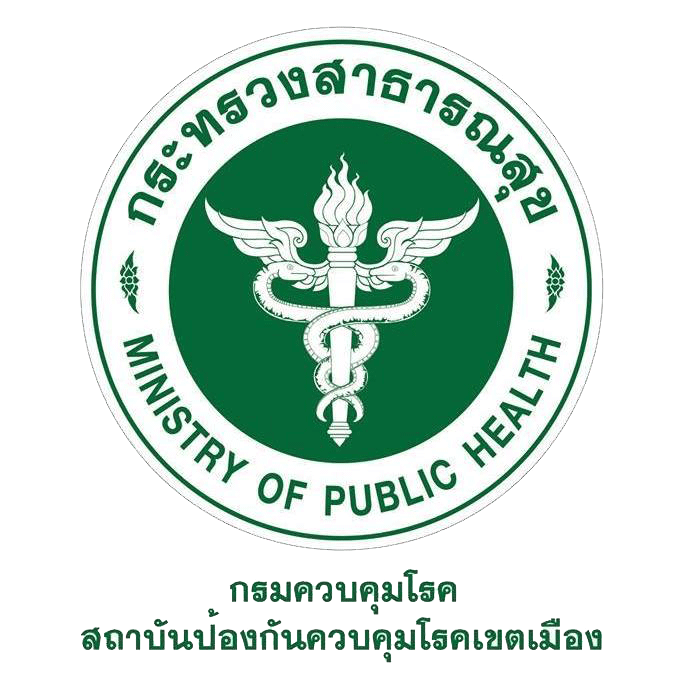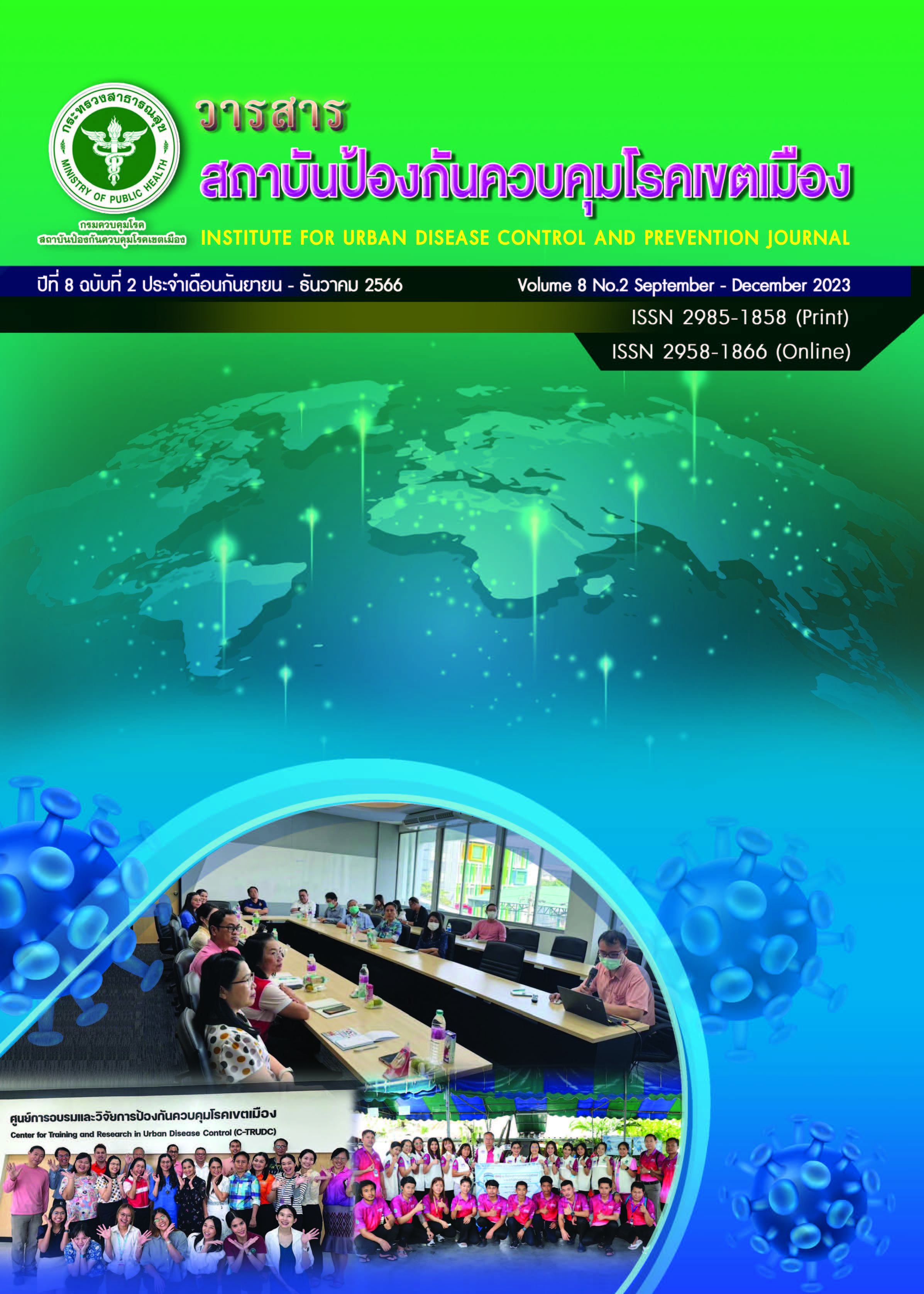ปัจจัยทำนายภาวะโภชนาการของผู้ป่วยภาวะหัวใจล้มเหลว
Main Article Content
บทคัดย่อ
ภาวะหัวใจล้มเหลวและภาวะโภชนาการเป็นปัญหาสาธารณสุขที่สำคัญของประเทศไทย การทราบถึงปัจจัยที่มีอิทธิพลต่อภาวะโภชนาการของผู้ป่วยภาวะหัวใจล้มเหลว จะช่วยทำให้ป้องกันภาวะทุพโภชนาการได้เพิ่มคุณภาพชีวิตผู้ป่วยภาวะหัวใจล้มเหลวได้ งานวิจัยนี้มีวัตถุประสงค์ เพื่อศึกษาปัจจัยที่มีอิทธิพลของการรับรู้ประโยชน์ของการบริโภค-อาหาร ความแตกฉานด้านสุขภาพ โรคร่วม กับภาวะโภชนาการของผู้ป่วยภาวะหัวใจล้มเหลว การวิจัยครั้งนี้เป็นการวิจัยเชิงทำนาย กลุ่มตัวอย่างคือผู้ป่วยที่ได้รับการวินิจฉัยว่ามีภาวะหัวใจล้มเหลว ซึ่งเข้ารับการตรวจรักษา ณ คลินิกโรคหัวใจล้มเหลว แผนกผู้ป่วยนอก โดยใช้วิธีการสุ่มตัวอย่างแบบเป็นระบบ ระหว่างเดือนกรกฎาคม ถึงเดือนตุลาคม พ.ศ. 2565 จำนวน 94 ราย เครื่องมือที่ใช้ในการวิจัยประกอบด้วยแบบสอบถามข้อมูลส่วนบุคคล การรับรู้ประโยชน์ของการบริโภคอาหาร ความแตกฉานด้านสุขภาพ โรคร่วม และแบบประเมินคัดกรองภาวะโภชนาการโรงพยาบาลภูมิพลอดุลยเดชวิเคราะห์ข้อมูลด้วยสถิติเชิงพรรณนาและการวิเคราะห์ถดถอยพหคูณแบบมีขั้นตอน
ผลการศึกษาพบว่าผู้ป่วยภาวะหัวใจล้มเหลวไม่มีความเสี่ยงต่อภาวะทุพโภชนาการ ร้อยละ 88.3 การรับรู้ประโยชน์ของการบริโภคอาหารในระดับปานกลาง ร้อยละ 59.6 (M = 59.1, SD = 5.2) ส่วนด้านความแตกฉานด้านสุขภาพ อยู่ในระดับก่ำกึ่ง และเพียงพอ ร้อยละ 46.8, 38.3 (M = 15.7, SD = 2.5) นอกจากนี้กลุ่มตัวอย่างส่วนใหญ่มีภาวะหัวใจล้มเหลวเพียงอย่างเดียว ร้อยละ 29.8 พบโรคร่วม 3 โรค เพียงร้อยละ 26.6 โดยโรคร่วมมากที่สุดคือกล้ามเนื้อหัวใจตาย กล้ามเนื้อหัวใจขาดเลือดเฉียบพลัน และความดันโลหิตสูง และปัจจัยที่มีอิทธิพลต่อภาวะโภชนาการของผู้ป่วยภาวะหัวใจล้มเหลว ได้แก่ โรคร่วม ซึ่งสามารถทำนายภาวะโภชนาการของผู้ป่วยภาวะหัวใจล้มเหลวได้อย่างมีนัยสำคัญทางสถิติ (ß = 0.232, p < .001)
จากการวิจัยในครั้งนี้พบว่าโรคร่วมเป็นปัจจัยที่สามารถทำนายภาวะโภชนาการของผู้ป่วยภาวะหัวใจล้มเหลวได้ ผลจากการศึกษานี้สามารถนำไปจัดการภาวะโรคร่วมที่เกิดขึ้นโดยเฉพาะกล้ามเนื้อหัวใจตาย กล้ามเนื้อหัวใจขาดเลือด และความดันโลหิตสูง เพื่อป้องกันภาวะทุพโภชนาการของผู้ป่วยหัวใจล้มเหลวต่อไป
วิธีการศึกษา: การวิจัยครั้งนี้เป็นการวิจัยเชิงทำนาย กลุ่มตัวอย่างคือผู้ป่วยที่ได้รับการวินิจฉัยว่ามีภาวะหัวใจล้มเหลว ซึ่งเข้ารับการตรวจรักษา ณ คลินิกโรคหัวใจล้มเหลว แผนกผู้ป่วยนอก โดยใช้วิธีการสุ่มตัวอย่างแบบเป็นระบบ ระหว่างเดือนกรกฏาคม ถึงเดือนตุลาคม พ.ศ. 2565 จำนวน 94 ราย เครื่องมือที่ใช้ในการวิจัยประกอบด้วยแบบสอบถามข้อมูลส่วนบุคคล การรับรู้ประโยชน์ของการบริโภคอาหาร ความแตกฉานด้านสุขภาพ โรคร่วม และภาวะโภชนาการ วิเคราะห์ข้อมูลด้วยสถิติเชิงพรรณนาและการวิเคราะห์ถดถอยพหคูณแบบมีขั้นตอน
ผลการศึกษา: พบว่าผู้ป่วยภาวะหัวใจล้มเหลวไม่มีความเสี่ยงต่อภาวะทุพโภชนาการ ร้อยละ 88.3 การรับรู้ประโยชน์ของการบริโภคอาหารในระดับปานกลาง ร้อยละ 59.6 (M = 59.1, SD = 5.2) ส่วนด้านความแตกฉานด้านสุขภาพ อยู่ในระดับก่ำกึ่ง และเพียงพอ ร้อยละ 46.8, 38.3 (M = 15.7, SD = 2.5) นอกจากนี้กลุ่มตัวอย่างส่วนใหญ่มีภาวะหัวใจล้มเหลวเพียงอย่างเดียว ร้อยละ 29.8 พบโรคร่วมมากกว่า 3 โรคขึ้นไป เพียงร้อยละ 26.6 โดยโรคร่วมมากที่สุดคือกล้ามเนื้อหัวใจตาย กล้ามเนื้อหัวใจขาดเลือดเฉียบพลัน และความดันโลหิตสูง และปัจจัยที่มีอิทธิพลต่อภาวะโภชนาการของผู้ป่วยภาวะหัวใจล้มเหลว ได้แก่ โรคร่วม ซึ่งสามารถทำนายภาวะโภชนาการของผู้ป่วยภาวะหัวใจล้มเหลวได้อย่างมีนัยสำคัญทางสถิติ (ß = 0.232, p < .001)
สรุป: จากการวิจัยในครั้งนี้พบว่าโรคร่วมเป็นปัจจัยที่สามารถทำนายภาวะโภชนาการของผู้ป่วยภาวะหัวใจล้มเหลวได้ ผลจากการศึกษานี้สามารถนำไปจัดการภาวะโรคร่วมที่เกิดขึ้นโดยเฉพาะกล้ามเนื้อหัวใจตาย กล้ามเนื้อหัวใจขาดเลือด และความดันโลหิตสูง เพื่อป้องกันภาวะทุพโภชนาการของผู้ป่วยหัวใจล้มเหลวต่อไป
Article Details

อนุญาตภายใต้เงื่อนไข Creative Commons Attribution-NonCommercial-NoDerivatives 4.0 International License.
บทความที่พิมพ์ในวารสารสถาบันป้องกันควบคุมโรคเขตเมือง ถือว่าเป็นผลงานวิชาการ งานวิจัยและวิเคราะห์ ตลอดจนเป็นความเห็นส่วนตัวของผู้เขียนเอง ไม่ใช่ความเห็นของสถาบันป้องกันควบคุมโรคเขตเมือง หรือคณะบรรณาธิการแต่ประการใด ผู้เขียนจำต้องรับผิดชอบต่อบทความของตน
เอกสารอ้างอิง
Heidenreich PA, Bozkurt B, Aguilar D, Allen LA, Byun JJ, Colvin MM, et al. 2022 AHA/ACC/HFSA Guideline for the Management of Heart Failure: A Report of the American College of Cardiology/American Heart Association Joint Committee on Clinical Practice Guidelines. Circulation. 2022. 145(18):e895-e1032.
วนิดา หาจักร, วงรัตน์ วัฒนกิจไกรเลิศ. อิทธิพลของความรู้สึกไม่แน่นอนในความเจ็บป่วย ความแตกฉานด้านสุขภาพ การสนับสนุนทางสังคม ต่อคุณภาพชีวิตของผู้ป่วยหัวใจล้มเหลว. วารสารพยาบาลศาสตร์ จุฬาลงกรณ์มหาวิทยาลัย. 2555;25(1):79-92.
รพีพรรณ อภิรมรัตน์. การส่งเสริมคุณภาพชีวิตในผู้ป่วยภาวะหัวใจล้มเหลว. วารสารพยาบาลโรคหัวใจและทรวงอก 2560;28(2):2-15.
Wu JR, Lennie TA, Frazier SK, Moser DK. Health-Related Quality of Life, Functional Status, and Cardiac Event-Free Survival in Patients with Heart Failure. J Cardiovasc Nurs. 2016;31(3):236-44.
Yoshihisa A, Kanno Y, Watanabe S, Yokokawa T, Abe S, Miyata M, et al. Impact of nutritional indices on mortality in patients with heart failure. Open Heart [Internet]. 2018 [cited 2022 Jan 8];5:1-8. Available from: https://openheart.bmj.com/content/openhrt/5/1/e000730.full.pdf
Uysal H, Öz Alkan H, Enç N, Yiğit Z. Assessment of Dietary Habits in Patients with Chronic Heart Failure. The Journal of Nursing Research. 2020;28(1):1-10.
วันวิสา ทีอุทิศ, วัลภา คุณทรงเกียรติ, สุภาภรณ์ ด้วงแพง. ปัจจัยที่มีอิทธิพลต่อพฤติกรรมการจัดการตนเองในการจำกัดโซเดียมของผู้ป่วยหัวใจล้มเหลว. วารสารวิทยาลัยพยาบาลบรมราชชนนี2562;35(1):1-10.
นนทกร ดำนงค์, ยุพิน ถนัดวณิชย์. ปัจจัยที่มีอิทธิพลต่อการทำหน้าที่ของผู้ป่วยภาวะหัวใจล้มเหลว. วารสารศูนย์การศึกษาแพทยศาสตร์คลินิก โรงพยาบาลพระปกเกล้า. 2563;37(4):334-42.
Diefenbach M, Leventhal H. The common-sense model of illness representation: Theoretical and practical considerations. J Soc Distress Homeless. 1996;5(1):11-38.
จริญญา คมเฉียบ. ความสัมพันธ์ระหว่างความรู้ การรับรู้อุปสรรค การรับรู้ประโยชน์ การสนับสนุนทางสังคม การรับรู้สมรรถนะแห่งตน กับพฤติกรรมการบริโภคเกลือโซเดียมของผู้ป่วยภาวะหัวใจล้มเหลว [ปริญญานิพนธ์ปริญญาพยาบาลศาสตรมหาบัณฑิต]. กรุงเทพฯ: จุฬาลงกรณ์มหาวิทยาลัย; 2556.
วิกานดา ศรีภูมิพฤกษ์, ดวงรัตน์ วัฒนกิจไกรเลิศ, วิชชุดา เจริญกิจการ. อิทธิพลของอาการ เหนื่อยล้า ความแตกฉานด้านสุขภาพ ภาวะซึมเศร้า และการใช้ยาหลายขนาน ต่อพฤติกรรมเสี่ยงของการเกิดปัญหาในการใช้ยาในผู้ป่วยภาวะหัวใจล้มเหลว. วารสารพยาบาลศาสตร์. 2559;34(Suppl1):83-93.
Cajita MI, Cajita TR, Han HR. Health Literacy and Heart Failure: A Systematic Review. J Cardiovasc Nurs. 2016;31(2):121-30.
Chen AM, Yehle KS, Plake KS, Murawski MM, Mason HL. Health literacy and self-care of patients with heart failure. J Cardiovasc Nurs. 2011;26(6):446-51.
van der Wal HH, van Deursen VM, van der Meer P, Voors AA. Comorbidities in Heart Failure. Handb Exp Pharmacol. 2017;243:35-66.
สุมาลี สามัคคานันทการ, สุภาภรณ์ ด้วงแพง, วัลภา คุณทรงเกียรติ. ปัจจัยที่มีอิทธิพลต่อการปฏิบัติหน้าที่ในผู้ป่วยภาวะหัวใจล้มเหลว. วารสารพยาบาลโรคหัวใจและทรวงอก. 2560;28(2):68-81.
Chamberlain AM, St Sauver JL, Gerber Y, Manemann SM, Boyd CM, Dunlay SM, et al. Multimorbidity in heart failure: a community perspective. Am J Med. 2015;128(1):38-45.
Huong PTT. Predicting factors of self-care behaviors in vietnamese adults with heart failure [dissertation Degree of Doctor of Philosophy Program in nursing science]. Bangkok:Chulalongkorn University;2015.
Faul F, Erdfelder E, Buchner A, Lang AG. Statistical power analyses using G*Power 3.1: tests for correlation and regression analyses. Behavior Research Methods. 2009;41:1149-60.
สุภาภรณ์ ด้วงแพง. สภาวะการทําหน้าที่ และปัจจัยที่มีอิทธิพลต่อสภาวะการทําหน้าที่ของผู้ป่วยโรคปอดอุดกั้นเรื้อรัง. วารสารวิทยาลัยพยาบาลบรมราชชนนี กรุงเทพ. 2558;31(3):13-24.
โรงพยาบาลภูมิพลอดุลยเดช . แนวทางการวินิจฉัยภาวะ malnutrition และคู่มือการใช้แบบประเมินภาวะทุพโภชนาการBNT. กรุงเทพฯ: งานโภชนาการ โรงพยาบาลภูมิพลอดุลยเดช;2552.
Gimeno-Miguel A, Gracia Gutiérrez A, Poblador-Plou B, Coscollar-Santaliestra C, Pérez-Calvo JI, Divo MJ, et al. Multimorbidity patterns in patients with heart failure: an observational Spanish study based on electronic health records. BMJ Open. 2019;9(12):1-9.
Sokos G, Kido K, Panjrath G, Benton E, Page R 2nd, Patel J, et al. Multidisciplinary Care in Heart Failure Services. J Card Fail. 2023;29(6):943-58.
Tevik K, Thürmer H, Husby MI, de Soysa AK, Helvik AS. Nutritional risk screening in hospitalized patients with heart failure. Clin Nutr. 2015;34(2):257-64.
Agra Bermejo RM, González Ferreiro R, Varela Román A, Gómez Otero I, Kreidieh O, Conde Sabarís P, et al. Nutritional status is related to heart failure severity and hospital readmissions in acute heart failure. In. J Cardiol. 2017;230:108-14.


